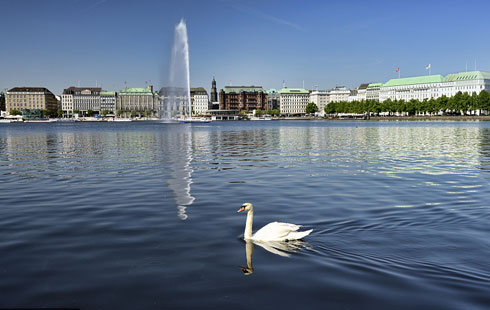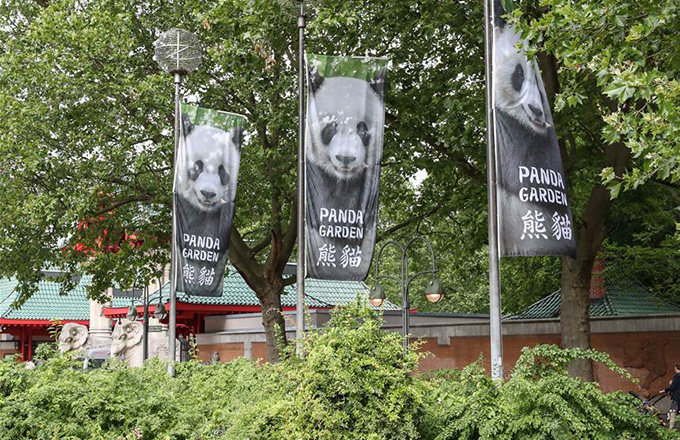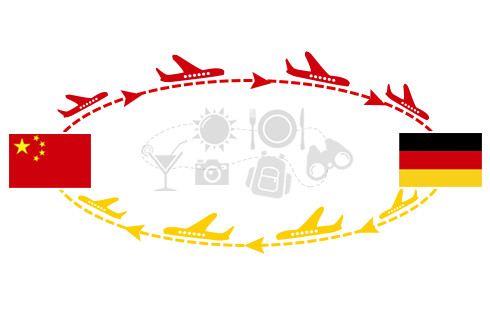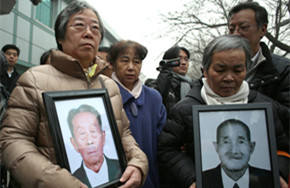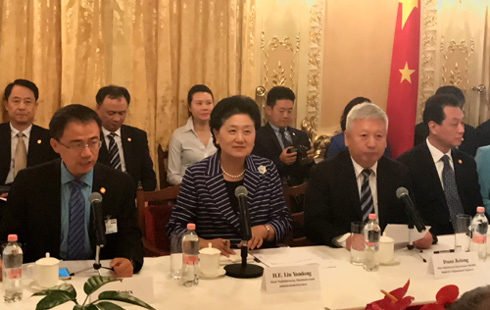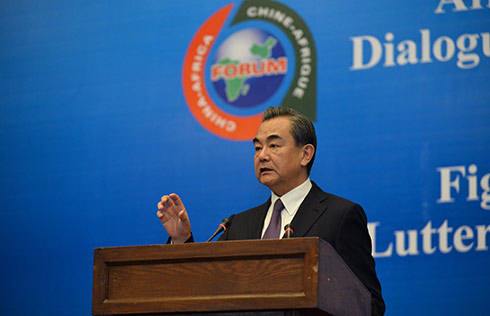China, Germany at forefront of the 'interconnected world'
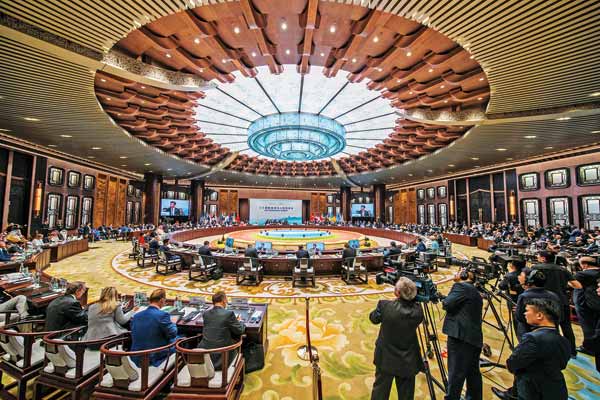 |
|
President Xi Jinping addresses the opening ceremony of the G20 Hangzhou Summit last year. [Photo/For China Daily] |
If there's one word that may come to define the common approach to tackling the global political and economic challenges of the early 21st century, it's "interconnected".
It is not only the key word of the Belt and Road Initiative, which involves 64 percent of world population, but it's also the theme of the last and this summit meetings of the leaders of the Group of 20 members, which collectively account for 80 percent of the global economy.
China and Germany, the previous and current hosts of the G20 summit, are strong defenders of globalization.
In September 2016, the G20 summit in Hangzhou, China, called for the building of an "interconnected" world economy.
As it now holds the G20 presidency, Germany has chosen "Shaping an interconnected world" as the theme for this week's summit in Hamburg.
That Germany and China chose the same key word for their respective host summits is not a coincidence, but a testimony to the two major economies' shared stance at a crossroad of the world.
With each the largest trading partner to the other in their respective continents, China and Germany are examples of the success of mutual cooperation, free trade and globalization. Last year, their combined economies accounted for nearly 20 percent of the world's total.
But rather than obstacles to trade, their social, cultural, governance and economic differences are complementary attractions and a justification for the strengthening of ties that has paved the way for bilateral cooperation and synergies on key policies, such as the 'Made in China 2025' action plan and Germany’s Industry 4.0 strategy.
However, further "interconnection" among nations faces a challenge from a recent rise in some areas of isolationism, protectionism and unilateralism.
Anti-globalization sentiment is apparently behind the "America-first policy," the UK's Brexit vote to leave the European Union and the recent US withdrawal from Paris climate accord.
Yet recent terror attacks in European capitals and the refugee crisis across the region stem from political turmoil in the Middle East and are not just local concerns, but are global challenges.
Zhu Min, former deputy head of the International Monetary Fund, said the mutual relevance of the stock markets in Asia and the US was probably about 15 percent 20 years ago. It is 85 percent today, he said.
In Hamburg, China will back German proposals on joint efforts to solve climate change, promote free trade, further economic globalization, and address pressing issues resulting from poverty and terrorism.
Such reciprocity arises from a shared vision and sense of responsibility to the rest of the world, or the "human community sharing the same destiny", as President Xi Jinping put it.
After the US withdrawal from the Paris climate change accord, German Chancellor Angela Merkel has put climate change high on the agenda at Hamburg. It's an issue that exposes the risk of division and the necessity of getting "interconnected".
- Hamburg G20 summit: Shaping an interconnected world
- Opportunities for Germany-China-Africa cooperation under the G20
- China expects G20 Hamburg summit to reach consensus on free trade: Official
- Deepening ties at and beyond the Hamburg G20 summit
- 2017 G20: China to deepen role in globalization by innovative global talent development






